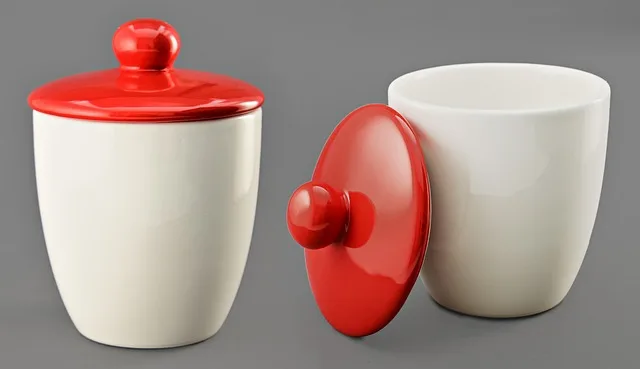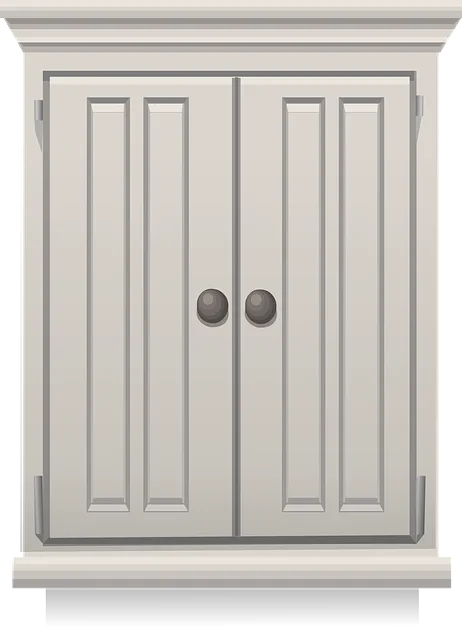First off, think about the frequency of use. Items you reach for daily, like plates and cups, should be at eye level. It’s like having your favorite book on the top shelf—great in theory, but a hassle to grab! Place these essentials in the upper cabinets closest to the counter for easy access.
Next, consider grouping similar items together. Imagine your cabinets as a mini grocery store. Keep your baking supplies—flour, sugar, and measuring cups—together in one spot. This way, when you’re in the mood to whip up a cake, you won’t be rummaging through a sea of mismatched items.

Don’t forget about the deep, dark corners of your cabinets! These spaces can be tricky, but they’re perfect for storing less frequently used items. Think of them as the attic of your kitchen. Use pull-out shelves or lazy Susans to make accessing those hidden treasures a breeze.
And let’s talk about pots and pans. They can be bulky, but stacking them vertically can save a ton of space. It’s like a game of Jenga—just make sure you don’t knock over the whole tower when you need that one frying pan!
Lastly, utilize the inside of cabinet doors. Hooks or small racks can hold spices or utensils, turning wasted space into a functional area. It’s like finding a secret compartment in your favorite video game—unexpected and oh-so-useful!
Maximize Your Space: The Ultimate Guide to Organizing Kitchen Cabinets
First things first, let’s talk about decluttering. Grab a trash bag and a donation box, and start pulling everything out. If you haven’t used that avocado slicer in the last year, it’s time to let it go. Think of it like spring cleaning for your cabinets—refreshing and liberating! Once you’ve cleared the clutter, you’ll have a blank canvas to work with.
Next, consider the layout. Group similar items together. Pots and pans? Stack them neatly. Baking sheets? Slide them vertically in a file organizer. It’s like creating little neighborhoods in your cabinets, making it easy to find what you need. And don’t forget about vertical space! Use shelf risers to double your storage without expanding your footprint. It’s like adding a second story to your kitchen!
Now, let’s talk about the magic of containers. Invest in some clear bins or baskets to corral smaller items. This not only keeps things tidy but also adds a touch of style. Plus, you can easily see what you have at a glance—no more mystery jars lurking in the back!
Lastly, think about accessibility. Place frequently used items at eye level and less-used ones higher up. It’s all about making your kitchen a functional space that flows. So, roll up your sleeves and get ready to transform your kitchen cabinets into a well-organized haven!
From Chaos to Clarity: Smart Strategies for Kitchen Cabinet Organization

First off, let’s talk about decluttering. Imagine your cabinets as a closet stuffed with clothes you never wear. It’s time to let go! Start by pulling everything out and sorting through your items. Keep only what you use regularly and what sparks joy. If you haven’t touched that fancy fondue set in years, it might be time to say goodbye.
Next, think about how you use your kitchen. Are you a baking enthusiast or a meal prep pro? Organize your cabinets based on your cooking habits. Place frequently used items at eye level and less-used gadgets on higher shelves. It’s like creating a personalized map of your kitchen, guiding you to your culinary treasures without the hassle.
Now, let’s get creative with storage solutions. Use clear bins to group similar items together—think spices, baking supplies, or snacks. This not only keeps things tidy but also makes it super easy to find what you need. It’s like having a mini grocery store right in your kitchen!
And don’t forget about vertical space! Stackable shelves or pull-out racks can double your storage without taking up extra room. It’s like adding a second story to your kitchen cabinets, giving you more space to breathe.
The Art of Arrangement: How to Optimize Your Kitchen Cabinet Layout
First off, consider the “kitchen work triangle” concept. This is where your stove, sink, and refrigerator form a triangle, making cooking a breeze. Now, let’s apply that to your cabinets. Place pots and pans near the stove, while your plates and utensils should be close to the sink and prep area. It’s like setting up a mini command center for your culinary adventures!
Next, let’s talk about vertical space. Don’t just think horizontally; go up! Use stackable containers or tiered shelves to maximize every inch. It’s like turning your cabinet into a multi-level parking garage for your kitchen essentials. You’ll be amazed at how much more you can fit without it feeling cluttered.
And what about those pesky small items? Drawer organizers are your best friends here. They’re like little soldiers keeping everything in line. No more digging through a chaotic drawer to find that elusive can opener. Instead, everything has its place, and you can grab what you need in a flash.
Lastly, don’t forget about visibility. Clear containers can be a game-changer. They’re like windows into your pantry, allowing you to see what you have at a glance. This not only saves time but also helps you avoid those “oops, I forgot I had that” moments.
So, are you ready to transform your kitchen cabinet layout into a masterpiece? With a little thought and creativity, you can turn your kitchen into a functional and stylish space that makes cooking feel like a joy rather than a chore.
Top Tips for Storing Kitchen Essentials: Where to Place Everything
First off, think about the “kitchen work triangle.” This concept is all about the relationship between your stove, sink, and refrigerator. Keep your most-used items—like pots, pans, and utensils—within arm’s reach of these key areas. It’s like having a well-rehearsed dance routine; everything flows smoothly when you know where to go!
Next, let’s talk about vertical space. Don’t just think about the counter and cabinets; look up! Installing shelves or using wall-mounted racks can free up valuable counter space. Plus, it’s a great way to showcase your favorite cookbooks or that quirky spice collection you’ve been curating. It’s like adding a personal touch to your kitchen’s personality!
Now, let’s not forget about drawer organization. Invest in some dividers to keep utensils sorted. It’s like giving each item its own little home. You’ll be amazed at how much easier it is to find that elusive spatula when everything is neatly arranged.
And what about those bulky appliances? Instead of letting them clutter your counters, consider a designated appliance garage or a cabinet with pull-out shelves. It’s like having a secret hideaway for your blender and toaster, keeping your kitchen looking sleek and tidy.
Lastly, label everything! Whether it’s jars of pasta or containers of flour, labels make it easy to find what you need at a glance. It’s like having a personal assistant in your kitchen, guiding you to exactly what you’re looking for.
Frequently Asked Questions
What Items Should Go in Upper vs. Lower Cabinets?
Upper cabinets are ideal for storing items that are used frequently but are lightweight, such as dishes, glassware, and spices. Lower cabinets should hold heavier items like pots, pans, and larger appliances, as they are easier to access and support more weight. Organizing items based on their size and usage can enhance kitchen efficiency.
Where to Place Frequently Used Kitchen Tools?
Organize frequently used kitchen tools by placing them within easy reach. Use drawer dividers for utensils, a magnetic strip for knives, and a countertop caddy for commonly used items like spatulas and whisks. Store pots and pans near the stove and keep measuring cups and spoons in a designated drawer or container to streamline cooking tasks.
How to Maximize Space in Small Kitchen Cabinets?
To optimize space in small kitchen cabinets, utilize stackable organizers, pull-out shelves, and vertical dividers. Group similar items together and use clear bins for visibility. Consider door-mounted racks for spices or utensils, and maximize vertical space by using the top shelves for less frequently used items. Regularly declutter to maintain an efficient storage system.
Best Practices for Storing Pots and Pans?
To effectively store pots and pans, prioritize organization and accessibility. Use a pot rack or wall-mounted hooks to save space and keep items visible. Stack pots with protective liners to prevent scratches, and store lids separately to avoid clutter. Consider using drawer dividers or pull-out shelves for easy access. Ensure heavy items are stored at lower levels to prevent accidents.
How to Organize Kitchen Cabinets Efficiently?
To efficiently organize kitchen cabinets, start by decluttering and removing items you no longer use. Group similar items together, such as pots, pans, and utensils, and use clear bins or dividers to maximize space. Store frequently used items at eye level for easy access, and consider vertical storage solutions for maximizing cabinet height. Labeling shelves can also help maintain organization over time.